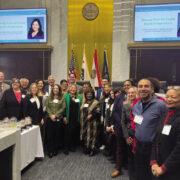IN the Philippines, many Pinoys do not have a car. If they do — it is one car per family. There are jeeps, tricycles, taxis (calesas in the olden days), pedicab, etc. to help us go from Point A to Point B. But here in the U.S., that can be a problem especially if you live in the suburbs or rural America where there is limited public transportation.
However, lately, even those with cars are experiencing a new way of commuting — and that is through the ride sharing apps like Uber and Lyft. Unlike taxis, these ride sharing options allow riders to contract services of a driver in a private car whereby the pick-up and drop-off times and place arrangements, even payments are done through an app.
This mode of transportation has gained traction in the Philippines but has recently been regulated so that unaccredited ride-sharing drivers are prohibited from operating. Here in the United States, the same debate has been brewing, and many states are considering enacting rules and regulations on ride-sharing.
The Filipino Channel’s daily newscast “Balitang America” aired on Friday, July 21 a story by our Senior Correspondent Henni Espinosa about this issue.
Espinosa rode with and interviewed a driver from Lyft, and a cab driver to get their perspectives on the issue.
She talked to taxi driver Rick Manansala who expressed his gripe about Uber and Lyft. Manansala has been a taxi driver in the San Francisco Bay area for seven years and told Espinosa that Uber and Lyft have caused a drastic loss of his income. Before the coming of transit network companies like Uber and Lyft, he said he could earn up to $300 a day, but now he said he is lucky to earn half of that amount.
Manansala said there are only 5,000 taxis in the area, while Uber and Lyft have as much as 60,000. He contended that it is not a fair playing field.
Espinosa quoted a recent Northeastern University report which shows that on an average weekday, rideshare drivers average about 170,000 pick-ups in San Francisco.
Espinosa also talked to Lyft driver Ryan Cayabyab (not the music Maestro), who explained the growing popularity of Lyft and Uber. He told Espinosa that passengers prefer ride sharing over taxis because of convenience. He explained that Uber and Lyft drivers use advanced smartphone technology to help riders find drivers fast.
“Whoever orders it, whoever is closest, we can get there in three to four minutes. With taxis, they say it’s 30 minutes, sometimes longer,” Cayabyab told Espinosa.
Cayabyab also pointed out that they offer a much lower rate compared to taxi cabs, and claims they are safer for passengers.
“It is safer, at least you know who your driver is,” he said, explaining that the driver information is on the ride sharing app system.
The taxi driver argued against this point, contending that passengers are better off riding taxi cabs because drivers are more experienced and follow particular guidelines.
Manansala explained in the Balitang America report that compared to ride-sharing drivers, they go through rigorous background checks before being issued taxi driving permits.
He also pointed out that taxi cabs can provide up to a million dollars of commercial insurance coverage for passengers who get into an accident, compared to ride sharing drivers’ coverage of up to $35,000 only with their private insurance.
Having weighed in both sides’ points, Espinosa rightly said that the real winners here will be us — the passengers, who now have more options to choose, depending on the type of driving service that truly matches our needs, budgets and lifestyles.
What is your choice?
* * *
Gel Santos Relos is the anchor of TFC’s “Balitang America.” Views and opinions expressed by the author in this column are solely those of the author and not of Asian Journal and ABS-CBN-TFC. For comments, go to www.TheFil-AmPerspective.com, https://www.facebook.com/Gel.Santos.Relos


